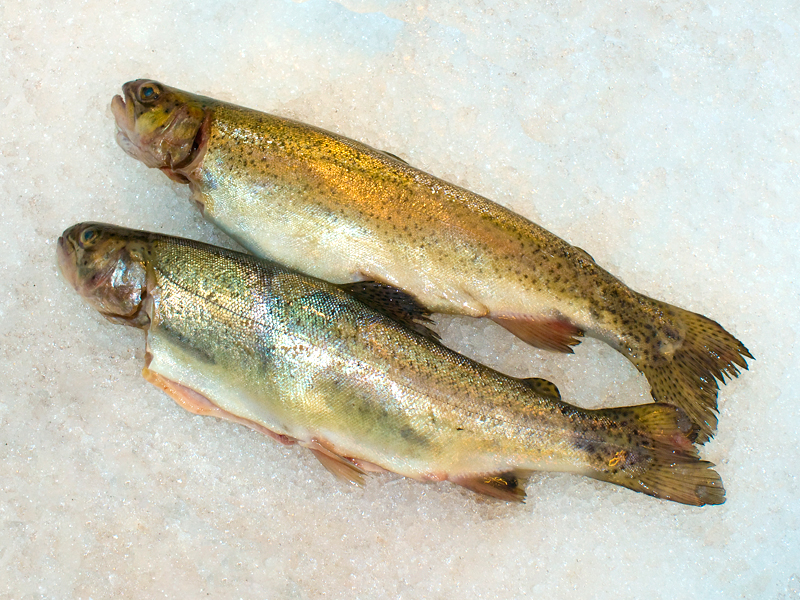Denmark – European Champion in Organic Rainbow Trout
Denmark is the biggest producer of organic rainbow trout with a total production of 1,080 metric ton (2014). At least a doubling of the production is expected within few years.

Danish producers of organic trout are currently peaking the ranking list for revenue among European organic trout producers. The profit performance per unit produced is higher than similar conventional producers, i.e. profit ratio of 8 pct. Only very specialized and expensive facilities for producing conventional trout may present comparable results.
The organic producers run traditional trout farms, which do not require big investments, i.e. a kind of smallholder farms. But the relative profitable revenue combined with a small scale production opens an alternative option to keep employment within fish farming.
Stable production
One of the most important challenges for establishing a profitable production is to be able to deliver the needed quantity and quality on time to the customers for their processing/sale. Hence, a certain amount of raw material must be available to fulfill this target. Currently the raw material is delivered all year round, and the product catalogue has been extended significantly, as additionally big rainbow trout and roe from an organic saltwater farm are included.
The Organic Cuisine Label
Additional different processing companies for organic fish have been established, which facilitates more marketing channels for the primary producers. In Denmark organic rainbow trout is primarily purchased in supermarkets and at a few fishmongers. However, by introduction of the Organic Cuisine Label, much focus points at the foodservice-sector: canteens, restaurants and additional public catering.
Unfortunately fish is currently not included in the organic accounting. If non-organic fish is included in the raw materials of meals, this is not at all taken into account in the organic accounting. This means that 100 percent organic raw materials in the organic accounting may cover up that 15 percent non-organic fish raw material has been included in the meals. Hopefully this issue will be addressed in the revision of the Organic Cuisine Label. Organic raw materials are available whatever it concerns organic trout, organic salmon, organic mussels or organic sea weed.
Labelling and consumers
Labelling of packaging may be a sales parameter for organic rainbow trout. Empirical data from marketing of salmon showed consumers’ willingness to pay from 24 to 38 percent more for an organic than for a conventional product.
Overall, trends indicate, that organic rainbow trout products have the potential to take bigger market shares from the conventional products in the short-run future perspective.
Go to the website of RobustFish
Authors:
Erling Larsen, Institute of Aquatic Resources, Technical University of Denmark
Max Nielsen, Dep. of Food and Resource Economics, University of Copenhagen
Villy J. Larsen, The Danish Aquaculture Organisation
Alfred Jokumsen, Institute of Aquatic Resources, Technical University of Denmark